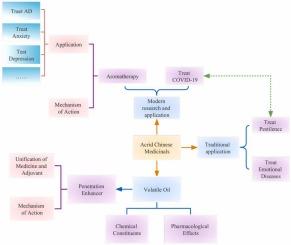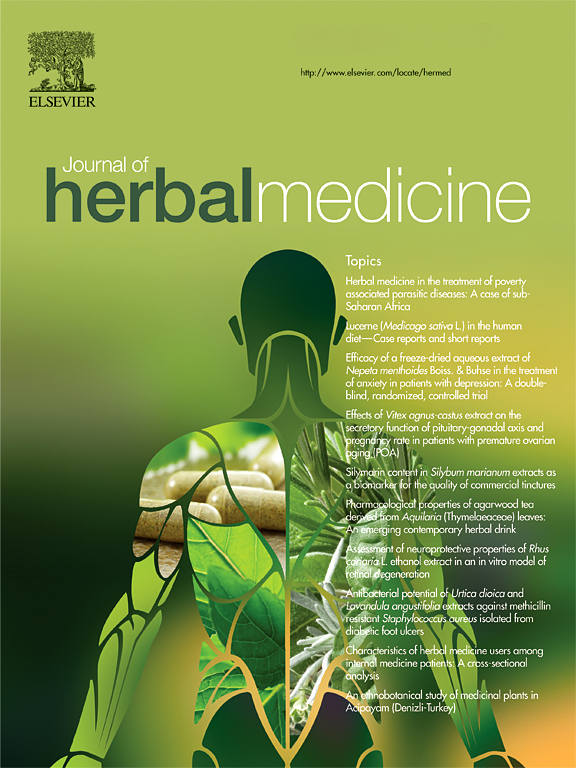Research progress and modern application analysis of chemical constituents and pharmacological effects of volatile oils in acrid Chinese medicines
IF 1.9
4区 医学
Q2 INTEGRATIVE & COMPLEMENTARY MEDICINE
引用次数: 0
Abstract
Introduction
This review aims to provide a systematic summary of the chemical constituents, pharmacological effects, traditional use, clinical applications and quality control of acrid Chinese medicines to provide a reference for in-depth research and product development of acrid Chinese medicinal volatile oils.
Methods
In this study, the database of CNKI, Web of Science and PubMed were used to search for information on acrid Chinese medicines using the name (Latin name) and ‘volatile oil’.
Results
This review summarises and analyzes the chemical composition and pharmacological effect of 126 kinds of eight types of acrid Chinese medicines. The results show that the main components of the volatile oils used in acrid Chinese medicines are terpenoids and terpenes, followed by alcohols and esters. These components have been used in medicine because of their pharmacological activities.
Conclusions
Volatile oils have a broad spectrum of pharmacological activities. However, due to the complex composition and unstable quality of volatile oils, the wider application of volatile oils is limited; the current quality specifications at all levels lack research on the composition limits and standards of volatile oils. Therefore, establishing corresponding quality control standards should be the key research direction for volatile oils in the future.

辛辣类中药挥发油化学成分及药理作用的研究进展及现代应用分析
本文对辛辣类中药的化学成分、药理作用、传统用法、临床应用和质量控制等方面进行了系统的综述,为辛辣类中药挥发油的深入研究和产品开发提供参考。方法利用中国知网(CNKI)、Web of Science和PubMed数据库检索以“挥发油”和“拉丁文”命名的辛辣类中药信息。结果对8类126种辛辣类中药的化学成分和药理作用进行了综述和分析。结果表明,辛辣中药挥发油的主要成分为萜类和萜烯类,其次为醇类和酯类。这些成分因其药理活性而被用于医学。结论挥发油具有广谱的药理活性。然而,由于挥发油成分复杂,质量不稳定,限制了挥发油的广泛应用;目前各级质量规范缺乏对挥发油成分限量和标准的研究。因此,建立相应的质量控制标准应是今后挥发油的重点研究方向。
本文章由计算机程序翻译,如有差异,请以英文原文为准。
求助全文
约1分钟内获得全文
求助全文
来源期刊

Journal of Herbal Medicine
INTEGRATIVE & COMPLEMENTARY MEDICINE-
CiteScore
3.90
自引率
0.00%
发文量
94
期刊介绍:
The Journal of Herbal Medicine, the official journal of the National Institute of Medical Herbalists, is a peer reviewed journal which aims to serve its readers as an authoritative resource on the profession and practice of herbal medicine. The content areas of the journal reflect the interests of Medical Herbalists and other health professionals interested in the clinical and professional application of botanical medicines. The objective is to strengthen the research and educational base of herbal medicine with research papers in the form of case studies, original research articles and reviews, monographs, clinical trials and relevant in vitro studies. It also publishes policy statements, opinion pieces, book reviews, conference proceedings and profession related information such as pharmacovigilance reports providing an information source for not only the Herbal Practitioner but any Health professional with an interest in phytotherapy.
 求助内容:
求助内容: 应助结果提醒方式:
应助结果提醒方式:


